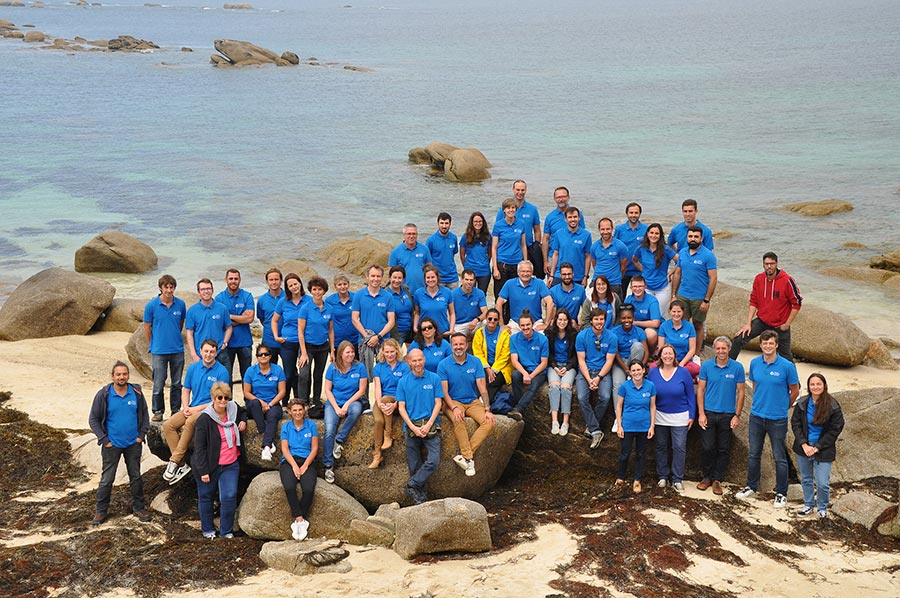France Energies Marines supports the MRE industry
- For over a decade, France Energies Marines has been supporting R&D projects in the marine renewable energy (MRE) sector. Through its work the institute is playing an important role in developing the technologies of tomorrow to secure a low-carbon and renewable energy mix.

© France Energies Marines A tidal turbine immersed in the Etel estuary in Morbihan, equipped with an artificial intelligence monitoring system to improve performance – this is the pitch for the Element project. The project brings together Scottish and French partners including France Energies Marines. “We are recognised as the institute for energy transition”, notes Herveline Gaborieau, Executive Director of France Energies Marines. The institute now has 75 staff, 27 member organisations, a headquarters in Brest and three regional offices on the Mediterranean, Channel and Atlantic coasts, and is involved in European-scale projects. “We support collaborative projects with manufacturers, SMEs and research centres. Our aim is to bring together a range of parties to pool academic resources, find funding and, ultimately, to facilitate the transition into the renewable energy sector.”
Wind power at the forefront
The principal focus of the marine renewable energy sector is on offshore wind, with the stated objective of 50 wind farms by 2050. “Things are moving, France is establishing itself in this area”, says Herveline Gaborieau. She does not seek to sidestep the fact that France is lagging behind on fixed wind power, although she highlights significant acceleration in relation to the future development of floating wind turbines: “France has three pilot sites under construction and is one of the first countries to launch a commercial tendering process. The sector is very active.” Since it was set up in 2012, France Energies Marines has supported around ten R&D projects each year, worth €20 million: “We need to speed things up further and provide opportunities for more structural projects to test technologies at sea. More important investment will be needed, but we have to achieve the European objective of 300 GW by 2050.”
- En savoir Plus
- Published on 07/21/2023


